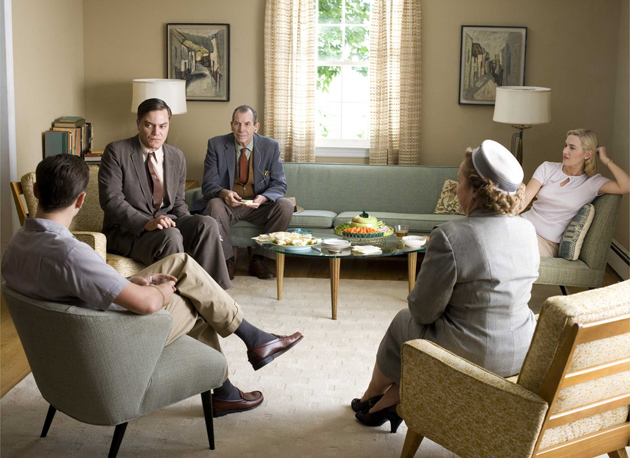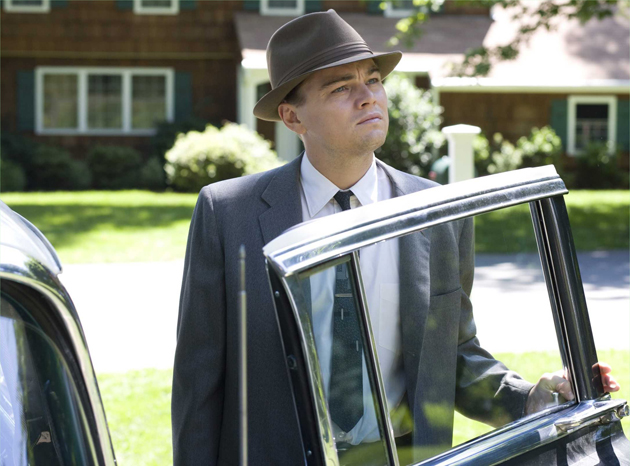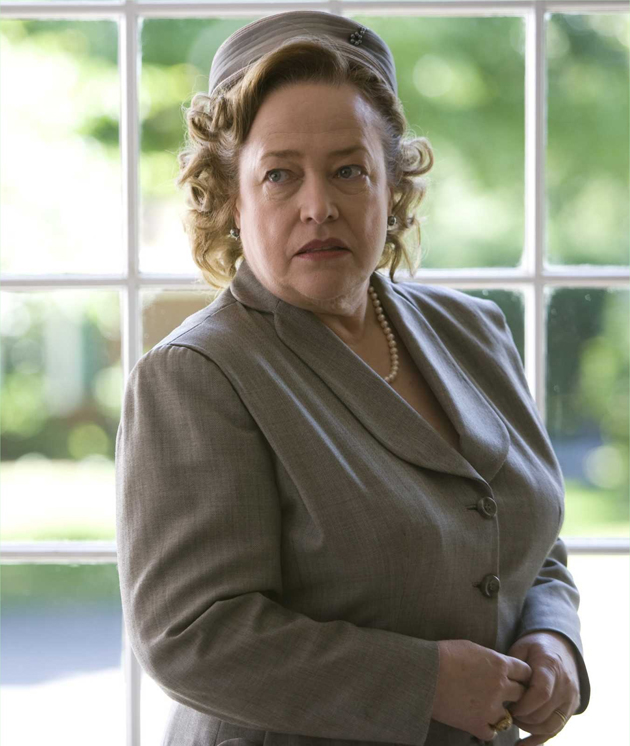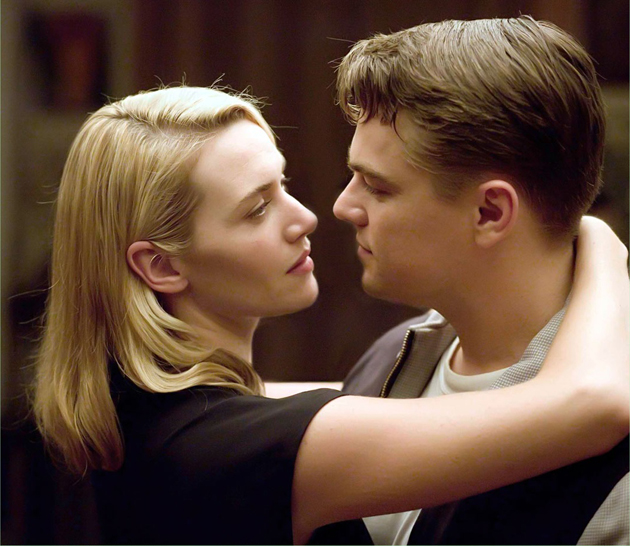A Constitutional Republic, where the First Amendment is Essential to OUR Survival
Revolutionary Road
Publisher's note: When you finish this Wyatt review, please spend a few moments using our Movie Database, and feel welcome to return. Nearly everything important to movies, plus great images are there.

Depression In the 50's, and the Collateral Damage
The film "Revolutionary Road" dealt with some of the same issues as "Rachel Getting Married," but there were two huge differences. The film' s characters were much more interesting than "Rachel," primarily due to their ability to elicit the audience's sympathy or empathy (depending one's mental state). Comparatively, "Revolutionary Road" was a much better produced film.
differences. The film' s characters were much more interesting than "Rachel," primarily due to their ability to elicit the audience's sympathy or empathy (depending one's mental state). Comparatively, "Revolutionary Road" was a much better produced film.
"Revolutionary Road" deals realistically with the issue of mental illness and how it is most often unsuccessfully integrated into society. In the 1950's society was structured to the extent that conformity was paramount. Director Sam Mendes used a fine screenplay by Justin Haythe to develop a great group of symbols of that era's rush to the middle. One of the best of these allegorical symbols was the exiting of the throng of businessmen, irrespective of position, upon the streets from the train station. Each man wore a neat suit of clothes and a fedora perched upon his head. That societal need to work within pattern was the order of that day, but it did not play well with the individual ego's of some people locked within the constraints of those times.

The Wheelers, Frank and April, Leonardo DiCaprio (left) and Kate Winslet (right) respectively, were the perfect could in 1950's Americana. Young, handsome and in love: Above and below.

The Wheelers, Frank and April (Leonardo DiCaprio and Kate Winslet respectively) of Revolutionary Road appeared to be the exception, but could break free of these societal bounds that ruled this decade. April also had all the signals of suffering from an undiagnosed case of acute manic depression, which compounded their situation in surviving as a family, much less living up to the neighbor's vicarious expectations.

The neighbors of Revolutionary Road, were enamored with the Wheelers. It was most important that Frank, DiCaprio, and April, Winslet, fulfilled their vicarious aspirations: Above.
The signals of her dysfunctional personality began to show up immediately, but appeared to manifest its debilitating symptoms in a more repetitive manner as their story unfolded. Her sad personal disability effected her husband, Frank, profoundly and yet he never stopped loving her and never gave up on her. Leonardo is developing into a very good actor and one can empathy sizes with Frank's pain as her relentlessly tries to please his increasingly demanding wife.

The Wheelers had it all, but lacked piece of mind due to April's mental illness. As the film continues, the weight of their personal tragedy etched deep into their faces, their lives became a trainwreck: Above Frank, DiCaprio, and below April, Winslet.

Kate's portrayal of April is what one, who knows film talent, would expect - she gives her standard effort, and it is superb. When she begins to understand a perceived essential truth residing in the words of the psychologically handicapped son of her visiting Realtor, played by the great character actor Kathy Bates, one can begin to see her own ego unraveling into her psychosis.

Kathy Bates as Mrs. Givings, the neighborhood Realtor: Above.
The Realtor's son, John Givings, played by Michael Shannon, stated to the Wheelers, "hopeless emptiness. Now you've said it. Plenty of people are onto the emptiness, but it takes real guts to see the hopelessness."

April Wheeler, Kate Winslet (left) and Frank Wheeler, Leonardo DiCaprio (right) were so in love: Above. Frank, DiCaprio (left) and April, Winslet (right), were soon to discover just how tough life can truly be: Below.

April understood John's maxim and when the refugees from the asylum start making sense, one need to gut check their own sanity. April never knew she needed too. She thought her unhappiness was with her husband and his ordinary job that led to her hopeless, emptiness of spirit.
Go Back

Depression In the 50's, and the Collateral Damage
The film "Revolutionary Road" dealt with some of the same issues as "Rachel Getting Married," but there were two huge
 differences. The film' s characters were much more interesting than "Rachel," primarily due to their ability to elicit the audience's sympathy or empathy (depending one's mental state). Comparatively, "Revolutionary Road" was a much better produced film.
differences. The film' s characters were much more interesting than "Rachel," primarily due to their ability to elicit the audience's sympathy or empathy (depending one's mental state). Comparatively, "Revolutionary Road" was a much better produced film.
"Revolutionary Road" deals realistically with the issue of mental illness and how it is most often unsuccessfully integrated into society. In the 1950's society was structured to the extent that conformity was paramount. Director Sam Mendes used a fine screenplay by Justin Haythe to develop a great group of symbols of that era's rush to the middle. One of the best of these allegorical symbols was the exiting of the throng of businessmen, irrespective of position, upon the streets from the train station. Each man wore a neat suit of clothes and a fedora perched upon his head. That societal need to work within pattern was the order of that day, but it did not play well with the individual ego's of some people locked within the constraints of those times.


The Wheelers, Frank and April (Leonardo DiCaprio and Kate Winslet respectively) of Revolutionary Road appeared to be the exception, but could break free of these societal bounds that ruled this decade. April also had all the signals of suffering from an undiagnosed case of acute manic depression, which compounded their situation in surviving as a family, much less living up to the neighbor's vicarious expectations.

The signals of her dysfunctional personality began to show up immediately, but appeared to manifest its debilitating symptoms in a more repetitive manner as their story unfolded. Her sad personal disability effected her husband, Frank, profoundly and yet he never stopped loving her and never gave up on her. Leonardo is developing into a very good actor and one can empathy sizes with Frank's pain as her relentlessly tries to please his increasingly demanding wife.


Kate's portrayal of April is what one, who knows film talent, would expect - she gives her standard effort, and it is superb. When she begins to understand a perceived essential truth residing in the words of the psychologically handicapped son of her visiting Realtor, played by the great character actor Kathy Bates, one can begin to see her own ego unraveling into her psychosis.

The Realtor's son, John Givings, played by Michael Shannon, stated to the Wheelers, "hopeless emptiness. Now you've said it. Plenty of people are onto the emptiness, but it takes real guts to see the hopelessness."


April understood John's maxim and when the refugees from the asylum start making sense, one need to gut check their own sanity. April never knew she needed too. She thought her unhappiness was with her husband and his ordinary job that led to her hopeless, emptiness of spirit.






















